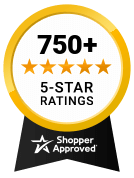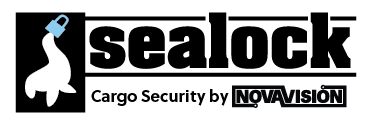CTPAT & CCSP Information

The Customs Trade Partnership Against Terrorism (CTPAT) is one layer in U.S. Customs and Border Protection’s (CBP) multi-layered cargo enforcement strategy. Through this program, CBP works with the trade community to strengthen international supply chains and improve United States border security. CTPAT is a voluntary public-private sector partnership program which recognizes that CBP can provide the highest level of cargo security through close cooperation with the principle stakeholders of the international supply chain such as importers, carriers, consolidators, licensed customs brokers, and manufacturers.
Another program is the Certified Cargo Screening Program, which is administered by the Transportation Security Administration (TSA). As part of the 9/11 Act, Congress passed a law in 2007 requiring that ALL cargo transported in the holds of passenger airplanes — either originating in the US or imported into the US -- must be screened at a level commensurate with passenger luggage. The Transportation Security Administration (TSA) is charged with enforcement.
The CBP and TSA are branches of the Department of Homeland Security (DHS).
Following is a summary of the initiatives (CTPAT and CCSP) by the DHS and how they relate to security seals and tamper evident tape.
1) CTPAT Compliant Security Seals — The CBP requires shippers to use cargo seals which are rated “high” security for cross border shipments. High security seals are independently tested by an accredited lab to pass ISO17712, which includes a series of structural tests, construction standards and tamper evident testing. To maintain the ‘high’ security rating, the seals must pass the tests and the independent testing report must be current within the prior 24 months. Seals which are successfully lab-tested in the most recent 24 months are “CTPAT Compliant”.
If you are unsure your security seal is CTPAT compliant, ask your seal supplier to provide their written certification along with the details for the test report number and date of the test. NovaVision certifications for ISO17712 are listed on each mechanical seal product page.
2) CTPAT Facility — Companies who import products are vetted by the DHS to confirm their security protocols and those of their international suppliers meet certain standards. The CTPAT certification is on a facility basis (not company wide). NovaVision’s Bowling Green Ohio facility is certified to CTPAT standards. The CTPAT certification for our facility has no direct effect on the CTPAT rating for the ‘high’ security seals we sell — it applies to our importing, exporting and operational security processes. Also, NovaVision is certified to ISO14298, which is a more stringent security protocol for our facility (as of this writing, fewer than 25 companies in the US have this rating). So although our CTPAT facility certification and the ISO14298 certification do not directly affect the high security seals we sell, they are an indication that our company operates in a secure environment to protect the products we make and ship.
3) CCSP — The TSA certifies companies to screen cargo, which will be transported on airplanes. The TSA has certified over 1000 independent companies — ranging from shipping, manufacturing, distribution, florists, funeral homes, museums etc. Part of the security requirements for the Certified Cargo Screening Facilities (CCSF) is to use tamper evident tape and other security seals to secure the cargo from tampering or placement of contraband. During the certification process, the local screening facility presents the desired seals and tamper evident tape to the local TSA agent for testing and approval. If the seals and tape perform as expected in the TSA test, the screening facility is approved and certified to continue using the tape and seals at their facility.
Frequently Asked Questions:
Q1: Are NovaVision mechanical security seals compliant with CTPAT?
A1: These ‘high’ security seals are compliant:
- 3.5 mm diameter cable seals (MS-C3.5 series)
- 5.0 mm diameter cable seals (MS-C5.0 series and MS-C5B9 series)
- Bolt Seals (MS-B7, MS-B8 and MS-B10)
- Barrier Seals (MS-BAR10, MS-BAR11, MS-BAR12)
Our certifications and related test reports are listed on each product page. You can also find more info on our certifications on the Learn More link.
Q2: My security seal supplier has not updated their ISO17712 test report within the last 24 months. Are my seals compliant with CTPAT ?
A2: Technically NO, the seals are not compliant. The independent testing report for each seal must be current within the last 24 months for the seals to be compliant.
Q3: What is the benefit of using “high” security seals?
A3: Your goods are better protected by an improved security seal. Also, your shipment will be expedited through customs with fewer delays at the port.
Q4: Are “High” security seals required for shipments within the USA?
A4: Currently, NO. However, many security-minded shippers are converting to “high” security seals due to the improved availability and cost of the current seals.
Q5: Are NovaVision’s tamper evident tapes compliant with CTPAT?
A5: Technically, no tamper evident tape by any manufacturer is compliant with CTPAT because ISO17712 does not apply to tape (ISO17712 only applies to mechanical security seals). The DHS (nor any of its branches) has not issued certification criteria for tamper evident tapes. Tamper evident tapes are approved for use by the local TSA agent for use at specific Certified Cargo Screening Facilities during the certification process. We can confirm that our tamper evident tapes (and security seals) have been approved by the TSA at hundreds of CCSF locations both in the USA and at international locations. Therefore, our products can be used with confidence that they will pass the local TSA testing.
Q6: What are other recommended protocols to improve security of shipments?
A6: CTPAT importers, carriers and manufacturers who wish to qualify for expedited processing and other related benefits under the U.S./Mexico FAST initiative will be required to adhere to the following procedures, protocols and standards with regards to the use of high security seals.
https://www.cbp.gov/travel/trusted-traveler-programs/fast/seal-requirements-manufacturers
Can't Find What You're Looking For? Try our Application Search


